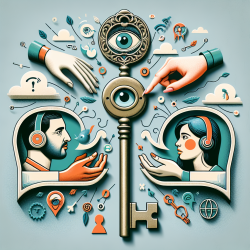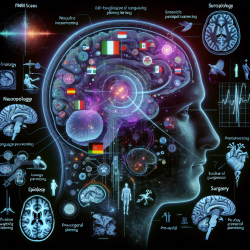In today's rapidly evolving digital world, the integration of technology into mental health care is becoming increasingly vital. A recent study titled Egyptian Students Open to Digital Mental Health Care: Cross-Sectional Survey sheds light on the potential of electronic mental health (EMH) services among young adults in Egypt. This research offers valuable insights for practitioners looking to improve their skills and adapt to the changing landscape of mental health care.
The Growing Interest in EMH Among Egyptian Youth
The study surveyed medical students at Tanta University in Egypt, revealing a significant interest in EMH services. With a high response rate of 90.9%, the survey found that 73.8% of participants had used the internet to seek information about mental health issues. However, many found the available information unsatisfactory. Notably, 85% of students expressed a preference for web-based therapy if provided through a trustworthy national platform.
This growing interest highlights the need for accessible and reliable digital mental health resources tailored to the needs of young people. Practitioners can leverage this interest by developing user-friendly platforms that address common concerns such as privacy and technology literacy.
Key Barriers and Opportunities
The research identified several barriers to EMH adoption in Egypt, including privacy concerns (54%) and unfamiliarity with technology (50%). These challenges present opportunities for practitioners to focus on enhancing security measures and providing education on digital literacy.
- Privacy Concerns: Addressing privacy issues is crucial for building trust among users. Practitioners should ensure that digital platforms comply with data protection regulations and communicate these measures clearly to users.
- Technology Literacy: Offering training sessions or resources that educate users on navigating digital platforms can help bridge the gap in technology literacy.
Designing Effective EMH Tools
The study emphasizes the importance of involving adolescents and young adults in the co-development of EMH tools. By engaging with target populations, practitioners can create platforms that resonate with users' preferences and needs. Key features that students found appealing include:
- Emotional Support: Providing resources that help users manage emotional difficulties and develop coping strategies.
- Interactive Content: Utilizing videos and interactive modules to explain mental health topics effectively.
- Cultural Sensitivity: Ensuring content is culturally relevant and available in both Arabic and English to cater to diverse user groups.
The Role of Practitioners in Advancing EMH
Practitioners play a pivotal role in advancing EMH by advocating for its integration into traditional mental health services. They can contribute by conducting further research on EMH's effectiveness and exploring innovative ways to combine digital tools with conventional therapies.
Additionally, practitioners should stay informed about emerging trends and technologies through conferences, publications, and webinars. Networking with other professionals can provide valuable insights into best practices and successful implementations of EMH solutions globally.
A Call to Action
The findings from this study underscore the potential of EMH as a promising strategy for addressing gaps in mental health care among young people in Egypt. By embracing digital solutions, practitioners can enhance their service offerings and better meet the needs of today's tech-savvy youth.
To read the original research paper, please follow this link: Egyptian Students Open to Digital Mental Health Care: Cross-Sectional Survey.










